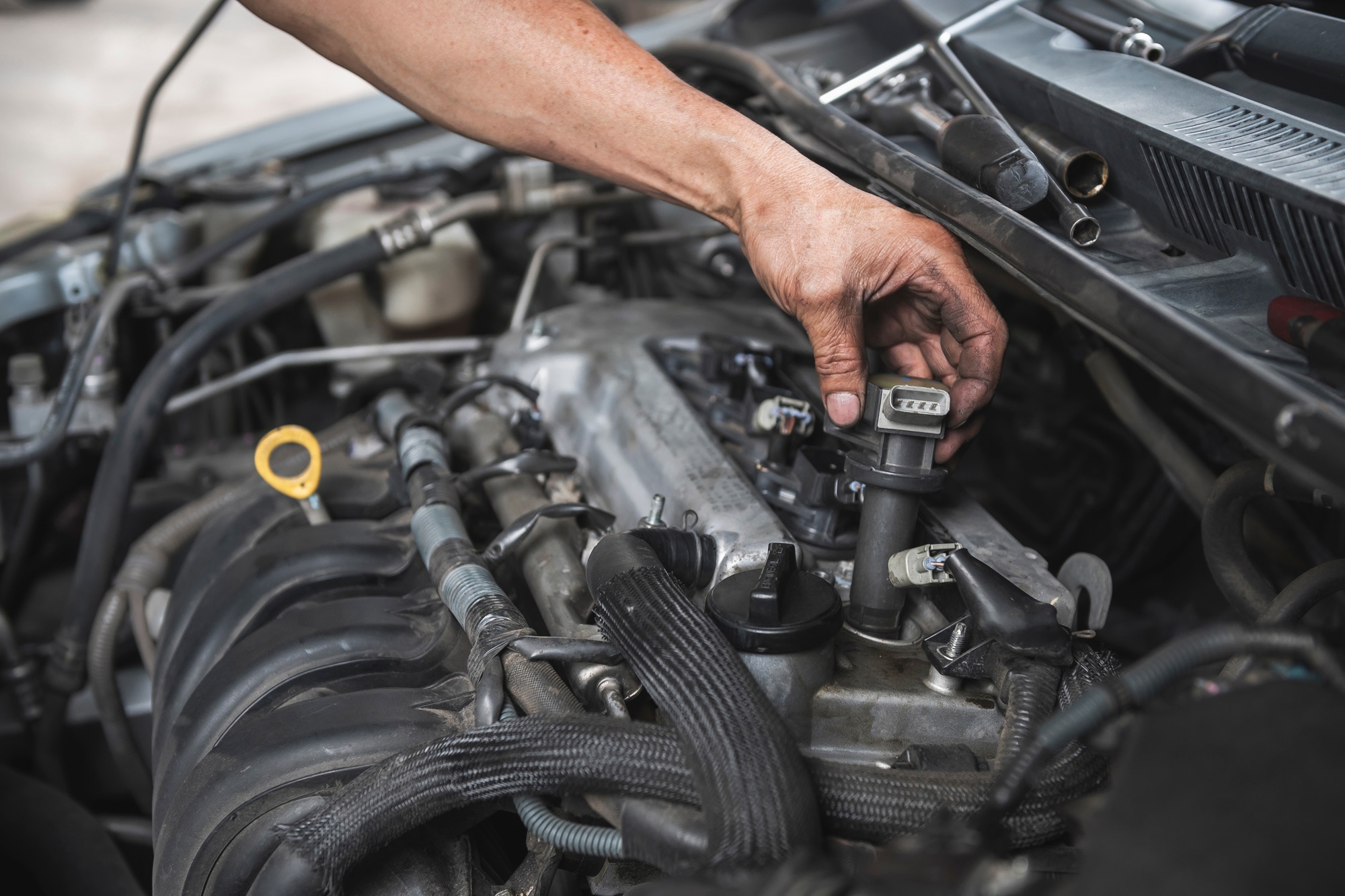What Is an Ignition Coil?
Without ignition coils, your car's engine won't have the voltage to start and run smoothly.
 Shutterstock
Shutterstock
QuickTakes:
Multiple parts under your car's hood are vital to the engine's smooth operation. The battery sends electricity to the alternator to kick-start the engine and to the spark plugs to start the combustion process within the cylinders. The battery's voltage, however, is too low to ignite the air-fuel mixture, so your car uses ignition coils to increase the power to make the spark plugs create spark.
An Ignition Coil Converts Voltage
An ignition coil's job is to convert the battery's low-voltage electricity to a higher voltage so that the spark plugs can produce sparks and ignite the air-fuel mixture within the engine's cylinders. It does this through electromagnetic induction, sending electricity through wire coils around a magnet.
This process quickly boosts the voltage of the electricity in the system. The resulting high-voltage electricity travels directly to the spark plugs so they can create a spark to begin combustion.
Ignition coils are typically attached to your car's battery and ignition switch, and most newer vehicles have a coil-on-plug design where each spark plug has its own ignition coil.
Common Symptoms of a Failing Ignition Coil
When your ignition coils don't work, your car might not start. Ignition coils typically last 80,000 to 100,000 miles. If your coils are beginning to go bad, you might get a check-engine light on your dash. Take your car to a mechanic as soon as possible to read the code on an OBD-II scanner.
Your engine could also start misfiring. If you notice a shake or vibration when idling or if your engine jerks while driving, get it inspected as soon as possible. You might get a check-engine light if the engine is misfiring.
In the absence of a warning light or other symptoms, if you notice reduced fuel economy or failing power, your ignition coil could be failing. A cylinder with insufficient spark will use more fuel than an appropriately powered one.
Ignition Coil Replacement Costs Vary Considerably
If your mechanic tells you it's time to replace your ignition coil packs, the complexity and cost depend on your car's make, model, and age.
Most new vehicles use a coil-on-plug design, so the ignition coil is attached to the spark plug. With this system, each cylinder has one coil pack. On a Toyota Camry with a V6 engine, for example, you'll need six ignition coils.
Ignition coils start at around $35 each, so the repair could cost $200 to $300 or more, depending on labor. Unless your mechanic diagnoses a single coil pack failure, replacing your ignition coils as a set is wise.
You can usually replace coil packs yourself with several common automotive tools, but you'll need an OBD-II scanner to clear the check-engine light once the job is complete.



